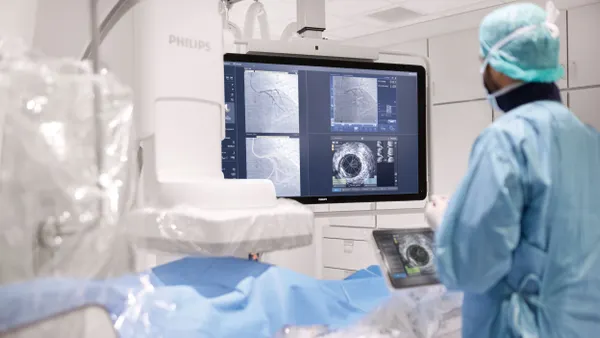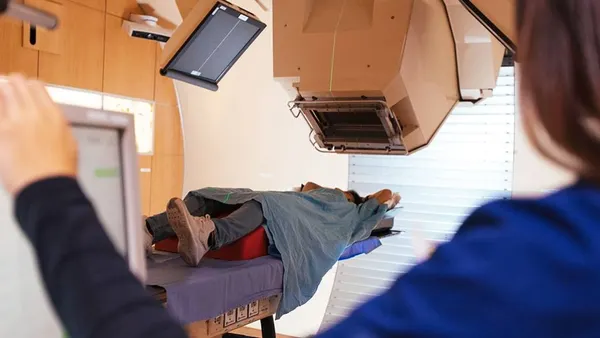Dive Brief:
- An artificial intelligence system for cancer diagnosis has received FDA’s breakthrough device designation, giving developers speedier agency review in recognition of the product's potential to improve treatment for life-threatening conditions or irreversibly debilitating diseases.
- Paige.AI has a licensing agreement with Memorial Sloan Kettering Cancer Center to develop the technology.
- The startup said it is working to develop a portfolio of AI products across cancer subtypes, beginning with prostate cancer.
Dive Insight:
While artificial intelligence is making inroads in healthcare facilities management, as an aid to improve efficiency in such areas as scheduling, staffing and billing, AI as a diagnostic tool in patient care is still in its infancy.
Paige.AI is calling itself the first publicly announced AI tool for cancer diagnosis. Launched in early 2018 with technology developed by Memorial Sloan Kettering data scientist Thomas Fuchs and colleagues, Paige.AI receives digitized slides through its agreement with the cancer center. The algorithm is trained with diagnoses from the world's foremost cancer experts, the company said.
Memorial Sloan Kettering began digitizing its pathology slides four years ago and now has more than one million such slides. Paige.AI said it will fund the digitization of an additional four million archive slides.
The New York Times and ProPublica reported in September about three MSK executives who held equity stakes in Paige.AI. The cancer center gave the company an exclusive deal for 25 million patient tissue slides in exchange for an ownership stake in the start-up of roughly 9%.
FDA's nod to Paige.AI's continued development follows the April 2018 approval of the IDx-DR software for detecting diabetic retinopathy, which was the first FDA-approved AI-based diagnostic system. Also working on an eye disease screening algorithm is Verily, a unit of Google parent Alphabet. Its initial effort is focused on India, where the goal is to expand access to screening in areas facing a shortage of eye doctors.
Another specialty in which AI is beginning to make an impact is radiology. In Europe, a Lithuanian company called Oxipit last month received CE mark approval for a platform that uses AI to generate preliminary radiology reports. The software assesses chest X-rays, one of the most common radiological exams.
In cardiology, the Mayo Clinic is studying AI in conjunction with EKG to detect a precursor to heart failure called asymptomatic left ventricular dysfunction.
Other recipients of breakthrough device designations this year include products addressing concussions, Alzheimer's disease and autism.








